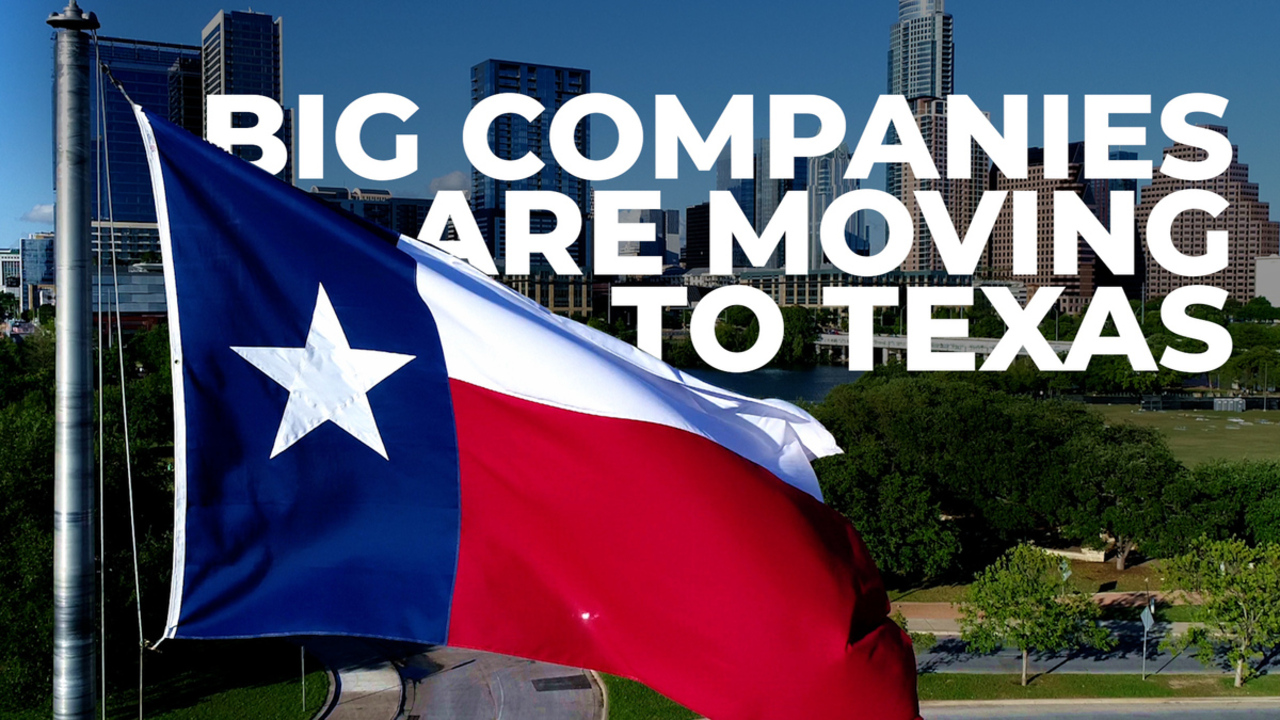
JIMMIE JOHNSON: THEIR MACHINES ARE SOME OF THE MOST ICONIC CONSTRUCTION EQUIPMENT IN THE COUNTRY. THEY’RE BIG. THEY’RE YELLOW AND, LIKE MANY OTHER MAJOR COMPANIES, CATERPILLAR IS MAKING THE MOVE TO TEXAS.
IT’S A TREND WE’VE BEEN SEEING FOR YEARS – BUT WHY? LET ME EXPLAIN.
MOVING TO A NEW HOME IS DIFFICULT ENOUGH – NOW IMAGINE RELOCATING AN ENTIRE HEADQUARTERS ACROSS THE COUNTRY.
VINCE GINN IS AN ECONOMIST AT TEXAS PUBLIC POLICY FOUNDATION, A CONSERVATIVE THINK TANK.
HE SAYS THE MOVE DOESN’T JUST BENEFIT THE BOTTOM LINE – IT CAN ALSO BOOST THE PAYCHECKS OF EMPLOYEES.
VANCE GINN: We’re one of only nine states and not have a personal income tax, which I think is huge. You have a franchise tax on business, but it’s relatively kind of low. + We also have a highly educated workforce.”
JOHNSON: SO FAR TEXAS IS HOME TO FIFTY-FOUR FORTUNE 500 COMPANIES. THE MOST IN THE COUNTRY.
SOME EXPERTS SAY A CENTRALIZED LOCATION, REGULATORY CLIMATE, AND HOUSING COSTS ARE ALSO FAVORABLE TO EXECS.
THEY’VE ALSO BEEN TAKING ADVANTAGE OF THE TEXAS ECONOMIC DEVELOPMENT ACT.
CHAPTER 313 IS A PROPERTY TAX INCENTIVE THAT’S BEEN AROUND SINCE TWO-THOUSAND-ONE AND IS SET TO EXPIRE AT THE END OF THE YEAR.
IT’S PARTLY WHY ELON MUSK BUILT A GIGAFACTORY AND RELOCATED TESLA’S HEADQUARTERS FROM SILICON VALLEY TO AUSTIN IN 20-21.
GINN: “Chapter 313, which is done by the independent school districts. They give a kind of tax abatement, a tax reduction over a certain number of years to reduce that property tax liability.”
JOHNSON: BUT GINN POINTS OUT THAT CATERPILLAR IS NOT BENEFITING FROM ANY SUBSIDIES FOR ITS MOVE – AND HE THINKS ITS JUST ONE REASON OUT OF MANY.
GINN: ”We don’t need tax incentives in place to bring businesses to Texas. Businesses are already going to move here. That’s what the research in this area this space shows.”>
JOHNSON: RIGHT NOW, THE STATE’S COMPTROLLER’S OFFICE SAYS MORE THAN 500 COMPANIES HAVE ACTIVE AGREEMENTS AND STAND TO BENEFIT FROM THE TAX INCENTIVE.






